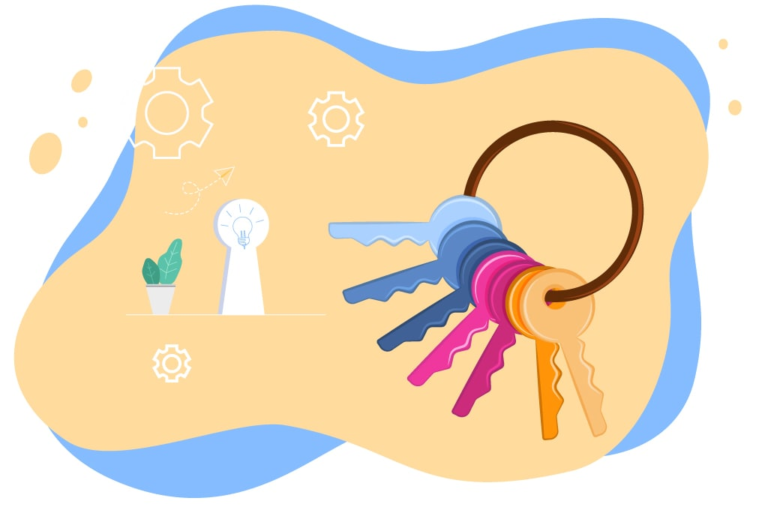Discover Thailand's Healthcare System: A Gateway to Quality Medical Services for Expats
Thailand's healthcare system is a gateway to quality medical services for expats, offering comprehensive coverage and accessibility. With a focus on promoting a healthy lifestyle, the system accommodates expats on work permits through public and private healthcare facilities.
Expats can obtain social security cards or universal coverage cards to prove eligibility and access services. By familiarizing themselves with costs, payment methods, and making appointments in advance, expats can fully utilize the reliable healthcare services within Thailand's government system.
Key Takeaways
- Thailand's healthcare system ensures access to quality medical services for expats and digital nomads.
- The system is tailored to expats on work permits and provides insights into features, benefits, and coverage.
- Thailand's healthcare system comprises both public and private healthcare facilities, with public facilities managed by the Ministry of Public Health.
- Expats on work permits are typically eligible for the healthcare system and need to obtain a social security card or universal coverage card for proof of eligibility and access to healthcare services.
Overview of Thailand's Healthcare System
Within the context of the knowledge provided, it is important to have an understanding of the overview of Thailand's healthcare system to fully grasp the benefits and features it offers to expats and digital nomads.
Thailand's healthcare system ensures access to quality medical services and promotes a healthy lifestyle. It is tailored to expats on work permits, providing insights into features, benefits, and coverage.
The system comprises both public and private healthcare facilities. Public facilities are managed by the Ministry of Public Health, while private facilities cater to premium services and specialized treatments.
Thailand's healthcare system emphasizes universal healthcare coverage, accessible to all citizens and eligible expats. Expats on work permits are typically eligible, with requirements varying based on work permit category and duration of stay.
To access healthcare services, expats need to obtain a social security card or universal coverage card, which acts as proof of eligibility. The enrollment process involves submitting relevant documents.
Eligibility and Enrollment Process
To enroll in Thailand's healthcare system, expats on work permits must meet certain eligibility criteria and complete the enrollment process. The requirements for eligibility may vary based on the work permit category and duration of stay. Expats need to obtain a social security card or universal coverage card, which serves as proof of eligibility and facilitates access to healthcare services. The enrollment process involves submitting relevant documents, such as a copy of the work permit, passport, and proof of address. Once enrolled, expats will have access to a wide range of healthcare providers, including government hospitals, clinics, and health centers. To provide a comprehensive view of the eligibility and enrollment process, the following table illustrates the documents required for enrollment:
| Required Documents |
|---|
| Copy of work permit |
| Passport |
| Proof of address |
| Social security card |
| Universal coverage card |
Services and Coverage Offered
A wide range of medical services and coverage options are available in Thailand's healthcare system to cater to the needs of expats.
The system comprises both public and private healthcare facilities. Public facilities, managed by the Ministry of Public Health, offer general medical services and are accessible to all citizens and eligible expats.
Private facilities, on the other hand, provide premium services and specialized treatments. When choosing a healthcare provider, expats should consider factors such as affordability and adherence to national healthcare standards.
Thailand's healthcare system also emphasizes universal healthcare coverage, ensuring that eligible individuals have access to healthcare services. Expats can expect reliable and accessible healthcare options within the government system.
These services and coverage options make Thailand an attractive destination for expats seeking quality medical care.
Costs and Payment Methods
For expats seeking quality medical care in Thailand, understanding the costs and payment methods is essential.
Thailand's healthcare system offers a variety of payment options to suit different needs. Expats can choose to pay out-of-pocket for their medical expenses or opt for health insurance coverage.
The costs of healthcare services in Thailand are generally lower compared to Western countries, making it an attractive option for expats.
Payment methods accepted at healthcare facilities include cash, credit cards, and sometimes bank transfers. It is important to note that not all healthcare facilities accept international insurance, so expats should confirm the accepted payment methods before seeking medical care.
Additionally, some facilities may require payment upfront before providing services, while others may allow for billing and subsequent payment.
Benefits and Advantages for Expats
Expats in Thailand can experience the benefits and advantages of a healthcare system designed with their specific needs and circumstances in mind. These benefits include:
- Comprehensive coverage: Thailand's healthcare system offers a wide range of medical services, including preventive care, emergency treatment, specialized treatments, and surgeries.
- Affordability: Compared to many Western countries, healthcare costs in Thailand are significantly lower. Expats can access high-quality medical services at affordable prices.
- Accessibility: Thailand has both public and private healthcare facilities, ensuring that expats have options to choose from. Public facilities are managed by the Ministry of Public Health and offer affordable services, while private facilities cater to premium services and specialized treatments.
- International standards: Thailand's healthcare system adheres to international standards, ensuring that expats receive quality medical care that meets global benchmarks.
Frequently Asked Questions
Are There Any Limitations on the Types of Medical Services Available to Expats in Thailand?
There are no limitations on the types of medical services available to expats in Thailand. The healthcare system offers a wide range of providers, both public and private, ensuring access to quality care for all eligible individuals.
How Long Does It Typically Take to Enroll in Thailand's Healthcare System as an Expat?
The duration to enroll in Thailand's healthcare system as an expat may vary based on work permit category and duration of stay. The process generally involves submitting relevant documents to obtain a social security card or universal coverage card for accessing healthcare services.
Can Expats Choose Between Public and Private Healthcare Facilities in Thailand?
Yes, expats in Thailand have the option to choose between public and private healthcare facilities. Public facilities are managed by the Ministry of Public Health, while private facilities offer premium services and specialized treatments.
Are There Any Specific Healthcare Services That Are Not Covered by Thailand's Healthcare System?
Yes, there are specific healthcare services that may not be covered by Thailand's healthcare system. These services may include certain elective procedures, cosmetic surgeries, and alternative therapies. It is important to check with healthcare providers for detailed coverage information.
What Additional Benefits or Advantages Are There for Expats Who Enroll in Thailand's Healthcare System?
Enrolling in Thailand's healthcare system offers expats additional benefits and advantages, such as access to quality medical services, tailored coverage, affordability, reliable healthcare providers, and a comprehensive healthcare network.
Conclusion
In conclusion, Thailand's healthcare system offers a comprehensive range of services and coverage for both citizens and eligible expats.
With a combination of public and private facilities, expats can access quality medical services tailored to their needs.
By understanding eligibility and enrollment processes, as well as costs and payment methods, expats can fully utilize the accessible healthcare services within the government system.
Overall, Thailand's healthcare system serves as a gateway to quality medical services for expats in the country.







